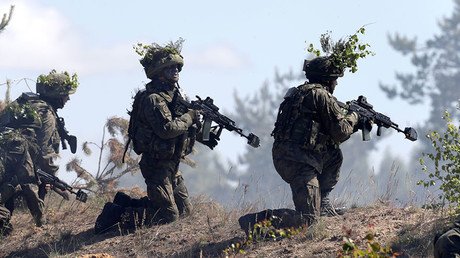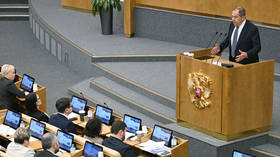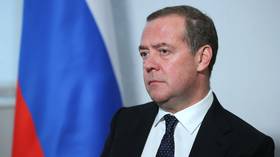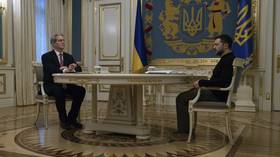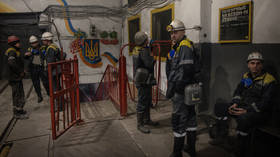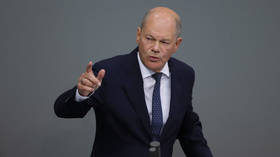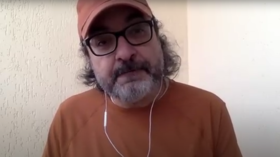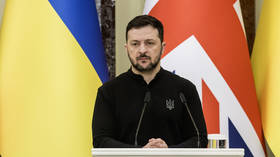All aboard reckless bandwagon blaming Russian subversion
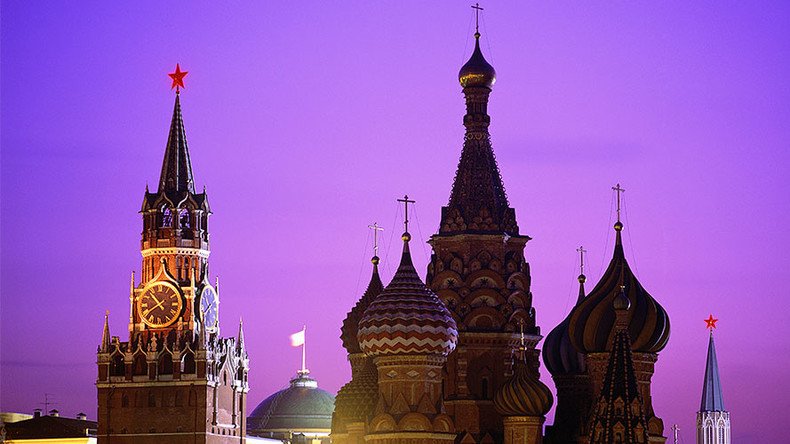
Russia is being blamed for interfering in elections across the globe, from the US, Britain, Germany to Estonia and others. Now the tiny Balkan state of Montenegro has jumped on the bandwagon, with an even more reckless version of the 'Russia-did-it' trope.
This week Montenegro’s state prosecutor concluded Russian state agents were not only trying to subvert elections, but the alleged plot also involved the attempted assassination of the former prime minister, to prevent it becoming a member of NATO.
With suspiciously good timing, the far-fetched story was given dubious credibility by Britain’s Telegraph newspaper. The day before the Montenegrin prosecutor made the announcement, the Telegraph published an article in which anonymous “Whitehall sources” issued the same claims of a Russian-sponsored coup attempt in Montenegro during the country’s parliamentary elections last October.
The fact the Telegraph is a well-worn conduit for British military intelligence disinformation is relevant.
Moscow lambasted the accusations as “absurd.” Kremlin spokesman Dmitry Peskov said the claims were “irresponsible,” having been leveled without any supporting evidence.
Russian Foreign Minister Sergey Lavrov noted the Montenegro scenario of alleged Russian interference “is just another one in a series of groundless assertions blaming our country for carrying out cyberattacks against the entire West, interfering in election campaigns in the bulk of Western countries, as well as allegations pointing to the Trump administration’s ties with Russian secret services, among other things".
"Not one iota of evidence has been brought forward about these groundless accusations,” added Lavrov.
BREAKING: Lavrov dismisses allegations that Russia plotted Montenegro coup as ‘unsubstantiated’https://t.co/WfmcWLxB14pic.twitter.com/nu7vsFiK3T
— RT (@RT_com) February 20, 2017
The Montenegrin authorities are indeed just the latest to finger Russia as a convenient scapegoat to distract from what appears to be their own internal political problems.
The canard was perhaps given away when Montenegro’s Foreign Minister Srdjan Darmanovic commented this week: “In today’s world, such interference is not specific only for Montenegro.” The minister is clearly trying to wrap Montenegro up in the same cloth of victimhood claimed by others who are impugning Russian malfeasance.
More plausibly, the real story here is Montenegro’s controversial plans to join the US-led NATO military alliance. NATO’s civilian chief Jens Stoltenberg formally invited the country to become the 29th member of the Alliance last May.
However, that move which has been pushed by former premier Milo Djukanovic and his ruling party is widely opposed among Montenegro’s population of 620,000, with polls showing public opinion edging against membership. This public opposition partly stems from the recent history of NATO bombing former Yugoslavia and the subsequent break-up of the state which led to Montenegro’s independence in 2006.
To be sure, Russia is staunchly against Montenegro joining NATO, viewing it as another provocative eastward expansion of the military pact toward its borders. Moscow is supportive of Montenegrin political parties opposed to NATO membership but denies any underhand interference in the country’s internal affairs.
The supposed plot by Moscow to overthrow the Montenegrin government in last year’s parliamentary elections to scuttle plans to join NATO is much more likely to be a ruse by the authorities to drum up anti-Russian public sentiment – with the aim of promoting its pro-NATO cause.
What Russia is accused of hatching in Montenegro – an armed takeover of parliament and trying to assassinate the premier – is so outlandish it can hardly be taken seriously. But the far-fetched allegations are being swept along in the slipstream of a much bigger propaganda drive in the West to blame Russia for everything.
German news outlet Deutsche Welle published an article last week with the headline: “Is Moscow meddling in everything?” It goes on to ask with insinuating tone: “Does Putin decide who wins elections in the West? Many believe that he cost Clinton the US presidency; now Macron is next France, and then Merkel will be in the line of fire.”
In the US, the Senate Intelligence Committee is stepping up its probe into allegations Russian cyber hackers helped Donald Trump win the presidential election on November 8. No evidence has ever been provided by US intelligence agencies to support these claims. But the allegations have taken on a life of their own, becoming coined as “fact” in the media and among Republican and Democratic politicians alike.
In Britain, parliamentarians have retrospectively cited the unproven Russian “influence campaign” for Trump to claim that Russian interference was a factor in why Britons voted unexpectedly in the referendum last June to leave the European Union.
According to American intelligence claims reported last month, Russia has interfered in the electoral process of several other European countries, including Austria, Germany, France, Bulgaria, Estonia, and Poland, as well as Ukraine.
This is in spite of the findings by German intelligence which concluded that there was no evidence that Russia hackers had targeted the country.
In the torrid climate of fake news and “fact-free” narratives, arguably the most egregious exemplar of this are the repeated claims of Russian interference in other nations’ elections. Western news media and governments have abdicated any modicum of responsible conduct to push this inflammatory narrative.
In recent days, French Foreign Minister Jean-Marc Ayrault issued a warning to Russia after he accused Moscow of interfering in the country’s forthcoming presidential elections. France’s top diplomat apparently based his condemnation against Russia on partisan claims made by presidential contender Emmanuel Macron that his campaign was being targeted by Russia. Macron claims his team’s computers were being attacked by hackers. Again, no evidence was provided. He also pointed to an unfavorable article in Russian news outlet Sputnik as grounds for claiming the Kremlin was out to spoil his campaign.
As in the heyday of the Cold War, and its countless Red Scare stories to keep Western populations cowering in fear, Russia has again emerged as the ultimate scapegoat.
Western states are wobbling from a lack of authority perceived by the public in governing institutions. Decades of economic and social inequality and overseas illegal wars have eroded the legitimacy of established political parties and mechanisms of governance. Western countries are groaning from discontent toward elitist, effete rulers.
The rise of populist figures, including Donald Trump in the US and anti-EU, anti-NATO parties in Europe, is symptomatic of this historical movement of mass protest.
Rather than the establishment parties and institutions, including the mainstream media, accepting that there is a popular revolt underway against a corrupt system, the convenient “explanation” is to blame the decline on Russia. The old Western order is falling apart it seems, from its own internal decay and misrule. But unable to face the truth, the ruling parties and system are desperately looking for a culprit. Russia and its alleged fiendish designs to destroy the Western order is the convenient scapegoat.
The propaganda delirium of blaming Russia for everything has become so fevered that even Montenegro’s ruling clique is emboldened to come up with the preposterous claim that Moscow is trying to assassinate its leaders.
This bandwagon of blaming Russia is prone to its wheels coming off – so ridiculous is it. But there’s also a danger that the anti-Russia vehicle pushed too far could explode into a full-scale war between NATO powers and Russia.
The statements, views and opinions expressed in this column are solely those of the author and do not necessarily represent those of RT.

